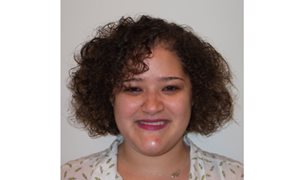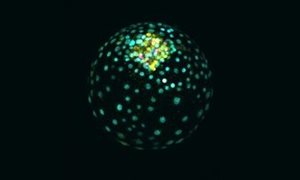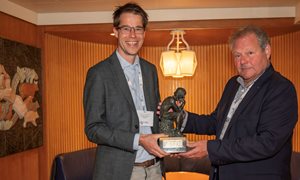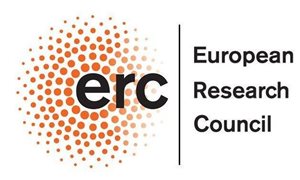 In an article published in Cell Stem Cell, Guido van Mierlo from the lab of Hendrik Marks, theme Cancer development and immune defense, together with collaborators, show how the cells of the embryo are getting prepared to form the various cell types that are present in an organism, such as skin cells or heart cells.
In an article published in Cell Stem Cell, Guido van Mierlo from the lab of Hendrik Marks, theme Cancer development and immune defense, together with collaborators, show how the cells of the embryo are getting prepared to form the various cell types that are present in an organism, such as skin cells or heart cells.
Publication: link.
A couple of years ago the Marks lab showed that the genome undergoes a reset towards a blank slate which the enables the embryo to further develop towards an organism, in particular DNA methylation is widely being removed. We now show that this reset has an important effect on the proteins that packaging the genome (the histones). In particular, some modifications of the histones are actively removed from the histones, while other modifications are newly linked to the histones. For one of the histone modifications, this results in a complete rewiring of the genome.
Altogether, these modifications to the DNA and the histones result in compaction of the DNA during development, which is preparatory for further specialization of the cells.
Related news items

T cell immunity is directed by tetraspanin CD53
5 July 2022 T cells are immune cells that are key for the defense against pathogens and cancer. T cells depend on the membrane protein CD45 to initiate T cell receptor signaling, but how CD45 is controlled at the molecular level is poorly understood. go to page
A single protein complex balances the very first lineage decision of cells in human: towards foetus or placenta
21 June 2022 The international group of researchers spearheaded by Dick Zijlmans and Hendrik Marks together with colleagues from KU Leuven, examined which proteins are associated with the chromatin and how this affects gene transcription. go to page
Dutch Society of Clinical Chemistry Science & Innovation Award for the team of Hans Jacobs
14 June 2022 The team of Hans Jacobs pioneers on the development of personalized diagnostics to measure minimal residual disease in patients with multiple myeloma. go to page
European grants for groundbreaking Radboudumc research Professors Roshan Cools and Peter Friedl receive ERC Advanced Grant
26 April 2022The European Research Council (ERC) is awarding grants to Roshan Cools and Peter Friedl, both professors at Radboudumc. While Cools will investigate how brains control behaviour in (stressful) situations, Friedl will work on developing a new cancer therapy.
go to page
Saponin-based adjuvant-induced dendritic cell cross-presentation is dependent on PERK activation published in Cellular and Molecular Life Sciences
20 April 2022 Lisa Huis in ‘t Veld, Nataschja Ho and colleagues from the team of Gosse Adema published in Cellular and Molecular Life Sciences that Saponin-based adjuvant-induced dendritic cell cross-presentation is dependent on PERK activation. go to page
Rubicon grants awarded to three RIMLS researchers
19 April 2022Three researchers have received Rubicon funding from NWO/ZonMw. This will enable Elke Muntjewerff, Laura de Vries and Laurens van de Wiel to do research at a foreign research institute for the next two years.
go to page